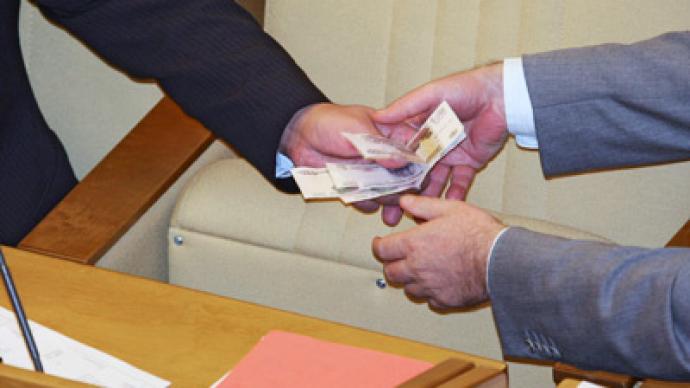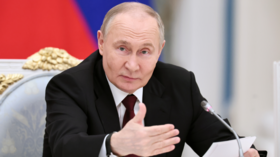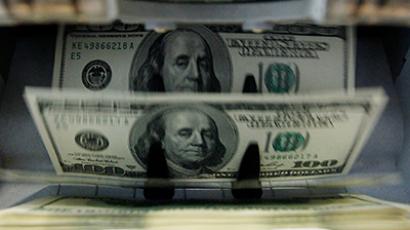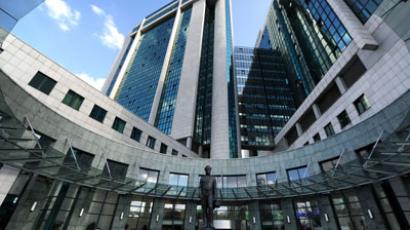Russia’s shadow economy down to 35% of GDP in 2011

The volume of Russia’s black economy decreased from an average 46% of GDP prior to 2011 to 35% in 2011. This led to over $211 billion of illicit money fleeing Russia in 1994-2011, US financial watchdog Global Financial Integrity (GFI) reports.
Over the 18 years Russia lost billions of dollars in form of bribes, tax evasion and money from the trade in drugs, weapons and people, according to the report. The illicit inflow of money to Russia amounted to almost $553 billion in the same period. “Russia has a severe problem with illegal flows of money. Hundreds of billions of dollars have been lost that could have been used to invest in Russian healthcare, education, and infrastructure. At the same time, more than a half trillion dollars has illegally flowed into the Russian underground economy, fueling crime and corruption,” GFI Director Raymond Baker said.According to the World Bank, Russia’s shadow economy is 3.5 times bigger than in other G7 countries. According to the research the increasing volume in the shadow economy can be blamed on the ineffectiveness of public administration and tax evasion. This undermines the economic and political stability of the country, GFI experts conclude. Last December GFI reported that Russia lost a whopping $151bn in black money leaving the country in 2001-2010, making it the fifth largest victim of illicit capital outflow.In the World Bank’s annual Doing Business 2013 report Russia climbed to 120th place from its former 112th out of 185 countries. According to the report in the recent years Russia made it easier for local entrepreneurs to pay taxes and also starting a business became faster in Russia thanks to improved coordination between the federal agencies involved in the business start-up process. The 10th edition of Doing Business report also finds that since 2005, Russia has implemented a total of 17 institutional or regulatory reforms that improve the business regulatory environment for domestic firms. “Russia has taken important steps in the last year to narrow the gap in the quality of the business environment with respect to that existing in high-income economies,” said Augusto Lopez-Claros, Director, Global Indicators and Analysis, World Bank Group. “That is part of the government’s continuous effort to improve the country’s investment climate, which was recently highlighted by President Vladimir Putin as a top policy priority.” Russia has also moved up 5 points in the 2013 Index of Economic Freedom compiled by The Wall Street Journal and The Heritage Foundation think tank, but remained pretty low in the overall list. It sits in 139th place out of 185 countries, and is classified as “mostly unfree”.













